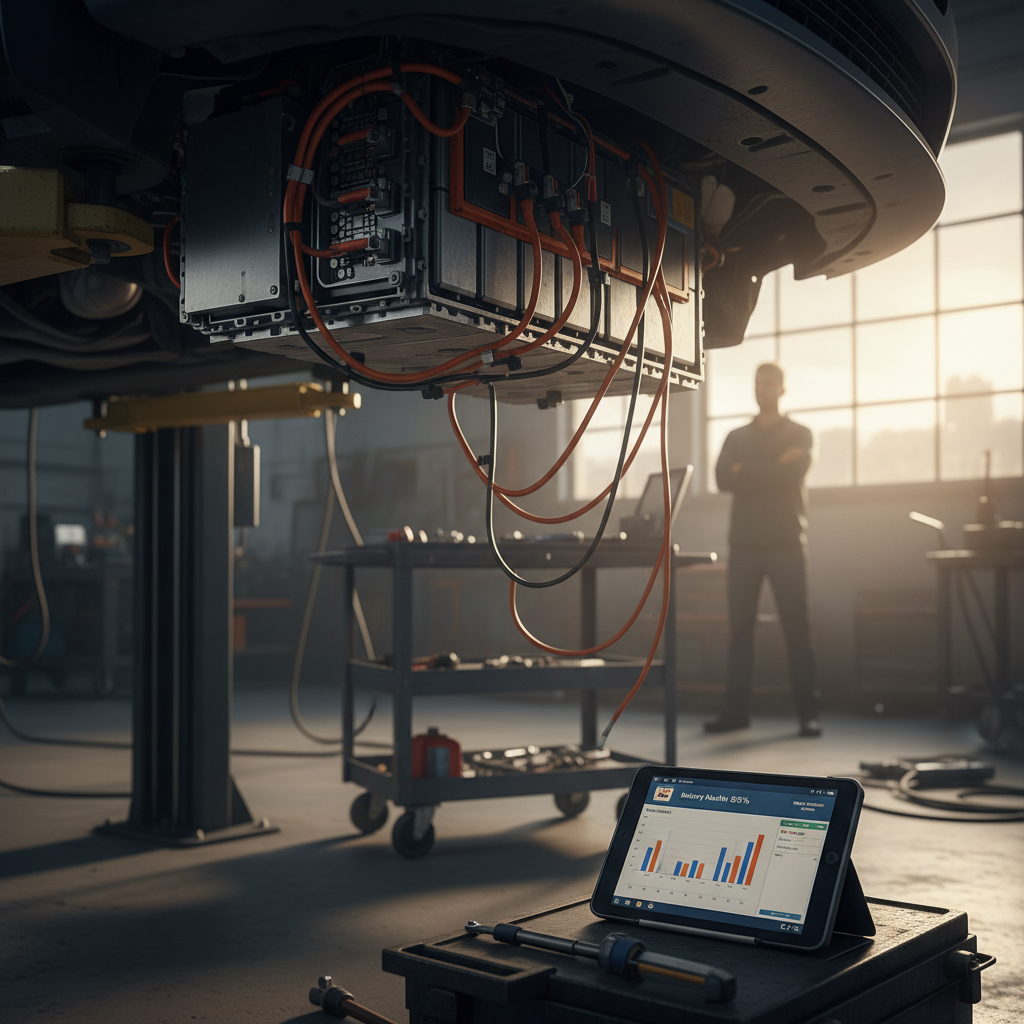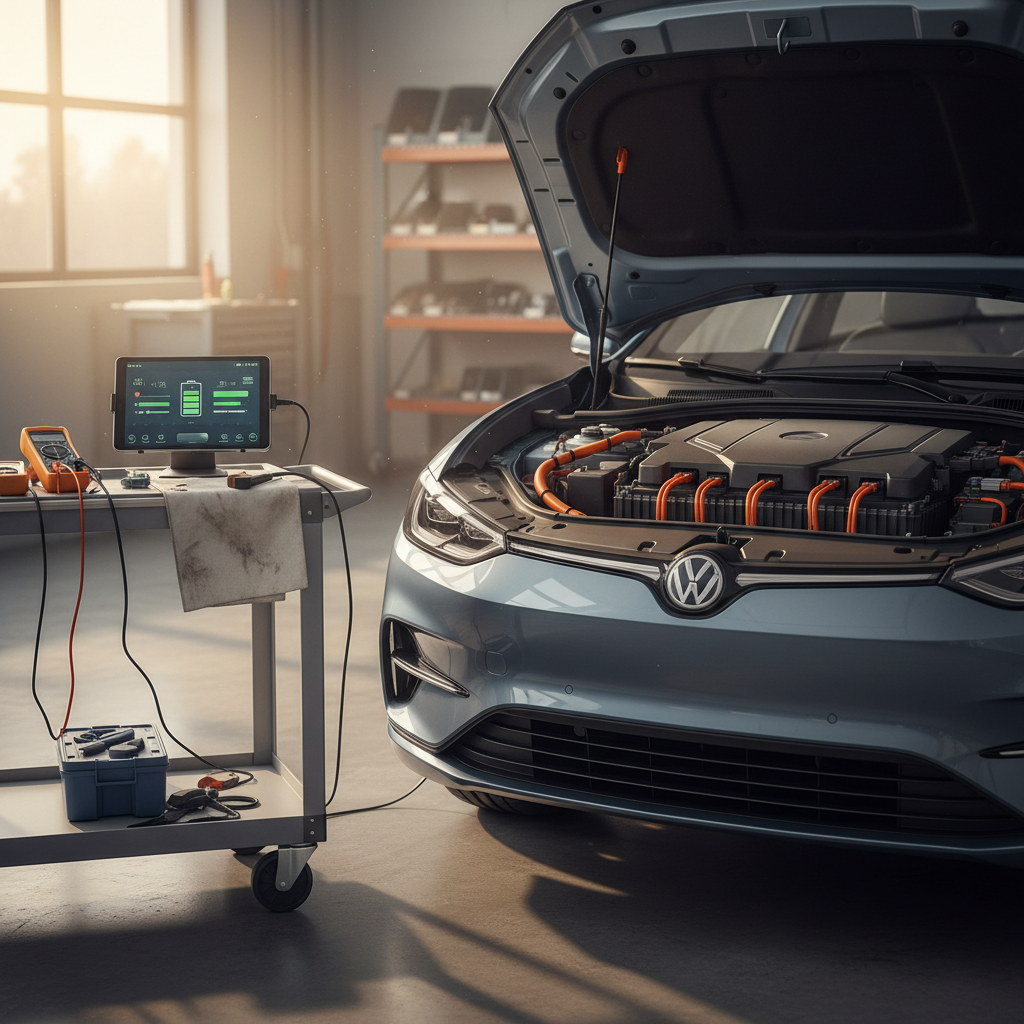If you just searched for “electric car repair shop near me”, you’ve probably discovered something fast: not every mechanic in town is ready for high‑voltage batteries, software updates, and specialized EV parts. The good news is that once you know what to look for, you can build a short list of shops that genuinely understand electric vehicles, and avoid expensive guesswork.
Quick insight
Why finding an EV repair shop feels different
Traditional repair networks were built around engines, exhaust systems, and transmissions. Electric vehicles flip that script. They eliminate oil changes, timing belts, and spark plugs, but introduce battery packs, inverters, electric motors, and complex software. Most automakers back those components with 8–10 year battery warranties, and studies in 2025 show EVs can cut maintenance costs by roughly 30–50% compared with gas cars over several years of ownership. The trade‑off: you need technicians comfortable with high‑voltage systems and diagnostics, not just wrenches and oil filters.
EV maintenance vs gas cars in 2025 (big picture)
Why the shop you choose matters
What actually needs repair on an electric car
When you picture “electric car repairs,” you might jump straight to battery replacement. In reality, most work an electric car repair shop does is a mix of familiar and new tasks. Here’s what typically lands EVs in the service bay:
- Tires and alignment – EVs are heavier and deliver instant torque, so they can wear tires faster. Regular rotation and alignment are critical.
- Brakes – thanks to regenerative braking, pads and rotors usually last longer, but they still need periodic inspection and occasional replacement.
- Suspension and steering – potholes don’t care what powers your car; shocks, struts, and control arms still take abuse.
- 12‑volt battery and accessories – many EVs still use a low‑voltage battery for accessories and control systems.
- HVAC and heat pumps – more complex climate control systems can require specialized diagnosis.
- Software and sensors – malfunctioning ADAS sensors, infotainment glitches, or charging errors often require both software and hands‑on troubleshooting.
- High‑voltage components – less common but more serious issues include onboard chargers, DC‑DC converters, inverters, and battery modules. These demand EV‑trained technicians.
Used EV tip

Dealership vs. independent electric car repair shop near you
When a dealership service center makes sense
- Warranty repairs: If your EV is still under bumper‑to‑bumper or battery warranty, dealer service is often required or strongly recommended.
- Software and recalls: Automaker updates, recalls, and complex software issues usually flow through the dealer first.
- Brand‑specific tech: Early‑generation EVs or low‑volume models may only have robust tooling and parts support at franchised dealers.
Downside: dealer labor rates are typically higher, and schedules can be backed up when new‑car sales spike.
When an independent EV shop is a smart choice
- Out‑of‑warranty repairs: Once factory coverage ends, independents often deliver the same quality at lower hourly rates.
- Wear‑and‑tear items: Tires, brakes, suspension, and many 12‑volt issues don’t require a franchise dealer.
- Personal service: Smaller shops can offer more direct communication and flexible scheduling.
Look for independents that advertise EV or hybrid specialization and list brands they see regularly, Tesla, Nissan, Hyundai–Kia, GM, Ford, and others.
Hybrid approach
How to find a qualified electric car repair shop near you
Typing “electric car repair shop near me” into a search bar is only step one. The real work is filtering for shops that are genuinely ready for EVs. Use this process to build a short list:
Step‑by‑step: building your EV‑capable shop list
1. Start with EV‑specific search terms
Search phrases like <strong>“EV repair near me,” “Tesla repair shop,” “hybrid & EV specialist,”</strong> plus your city or ZIP code. Map listings and review sites will surface the first batch of candidates.
2. Scan websites for EV training and tools
Open each shop’s website. Look for explicit mentions of <strong>EV or hybrid service, high‑voltage safety training,</strong> or specific brands (Tesla, Nissan LEAF, Hyundai Ioniq 5, Mustang Mach‑E, etc.).
3. Check certifications and affiliations
ASE L3 (Advanced EV), OEM‑certified programs, and memberships in EV‑focused networks are big pluses. Collision shops should list OEM or insurer EV certifications.
4. Read reviews with an EV filter
On Google, Yelp, and similar platforms, search within reviews for terms like “electric,” “EV,” “Tesla,” or your model name. You want proof they’ve solved problems for EV owners like you.
5. Call and ask about recent EV work
Ask how many EVs they see per week and what kinds of repairs they’ve handled in the last month. Concrete examples are more useful than general assurances.
6. Confirm parts and warranty handling
For newer EVs, ask whether they can source OEM parts, work with extended warranties, and document repairs in a way your manufacturer and insurer will accept.
Key questions to ask any EV repair shop
Once you’ve narrowed your list, a five‑minute phone call can tell you more than an hour of web research. Here are questions that separate truly EV‑ready shops from those just testing the waters:
- Do you have technicians with EV‑specific training or ASE L3 certification?
- How many EVs do you typically work on each week, and which brands?
- Have you performed repairs on vehicles like mine (make, model, and model year)?
- What EV‑specific diagnostic tools and safety equipment do you use?
- Can you share an example of a recent EV repair you completed and how you diagnosed it?
- How do you handle high‑voltage battery concerns, do you diagnose, repair modules, or only replace under warranty?
- Will your documentation be accepted by my warranty provider or extended service contract?
Red flags to watch for
Typical EV repair and maintenance costs in 2025
Costs vary widely by region and model, but the pattern in 2025 is clear: EVs spend less on routine maintenance but may face higher bills when something major breaks. Here’s how that usually shakes out:
Typical annual maintenance costs (ballpark ranges)
These broad ranges assume a typical compact or midsize vehicle driven around 12,000–15,000 miles per year. Your numbers may vary, but the relative differences are consistent.
| Item | Typical EV | Typical gas car | Notes |
|---|---|---|---|
| Oil changes | $0 | $150–300 | EVs don’t need engine oil changes. |
| Routine maintenance | $150–300 | $700–1,500 | EVs avoid tune‑ups, exhaust, and many fluid services. |
| Brakes (per service) | $250–500 | $300–600 | Regenerative braking can double pad and rotor life on many EVs. |
| Tires (set of 4) | $800–1,200 | $600–1,000 | EV‑rated tires can cost more; heavy curb weight adds wear. |
| Out‑of‑warranty major repair | $1,000–5,000+ | $800–4,000+ | High‑voltage components can be costly but are rarely needed early in life. |
EVs usually win on routine maintenance costs, even if insurance and some repairs are pricier.
Don’t forget total ownership cost
Collision and body repair for electric vehicles
Body shops are racing to catch up with EVs. A moderate crash that would be routine on a gas car can be more complex on an electric vehicle, because technicians must assess battery damage, high‑voltage cabling, and sensor calibration. Industry estimates in recent years show EV collision repair bills running roughly 20–30% higher than similar gas vehicles in some markets, largely because of parts prices and safety protocols.
What to look for in an EV‑capable collision shop
Paint and body work are only part of the story when high‑voltage systems are involved.
OEM or insurer EV certification
Ask if the shop is certified by your EV’s manufacturer or listed as an approved EV repair facility by major insurers. That usually means the staff has completed specific training and the shop has the right tooling.
High‑voltage safety procedures
A proper EV collision shop will have clear procedures for isolating and inspecting the battery pack, checking for structural damage near high‑voltage components, and preventing thermal events.
Sensor and ADAS calibration
Modern EVs pack cameras, radar, and ultrasonic sensors. After repairs, the shop should be able to re‑calibrate ADAS systems or coordinate with a partner that can.
Insurance realities
Owning a used EV: staying ahead of repairs
Used EVs are one of the brightest spots in today’s market, with prices dropping faster than new models and plenty of life left in the batteries. At the same time, more of these cars are aging into their first major service events. If you’re buying or already own a used EV, a proactive repair strategy matters more than ever.
Used EV owner checklist: repair and maintenance
Get a battery health report before you buy
Battery capacity typically declines only 1–3% per year, but real‑world wear depends on climate, fast‑charging habits, and mileage. A third‑party report, like the <strong>Recharged Score battery health diagnostics</strong> included with every vehicle from <strong>Recharged</strong>, gives you a baseline before you commit.
Map out your local EV‑friendly shops
Before something breaks, identify a nearby dealer for warranty or software issues and at least one independent EV‑savvy shop for tires, brakes, and everyday repairs.
Schedule preventative checks, not just fixes
Ask your shop to check tires, suspension, and high‑voltage cabling during routine visits. Small issues caught early are cheaper than big issues ignored.
Understand your warranties and coverage
Know when your battery and powertrain warranties expire, and whether a previous owner purchased extended coverage that transfers to you.
Keep software and recalls up to date
Over‑the‑air updates and recall campaigns often fix drivability and charging issues before they become expensive repairs.
Where Recharged fits in
Electric car repair shop FAQ
Frequently asked questions about EV repair shops
Bottom line: how to feel confident about EV repairs
Searching for an electric car repair shop near me doesn’t have to end in guesswork. Focus on shops that can prove their EV experience, show you real‑world examples of the cars they service, and explain how they protect both your safety and your warranty. Use dealerships strategically for warranty and software work, and cultivate a relationship with an independent EV‑savvy shop for everything else.
If you’re already driving, or considering buying, a used EV, pairing a solid repair partner with transparent vehicle information is the best way to stay ahead of costs. That’s exactly why Recharged includes verified battery health, fair market pricing, and expert support with every vehicle we sell. When you know the car and you know who will fix it, owning an EV becomes a lot simpler.


